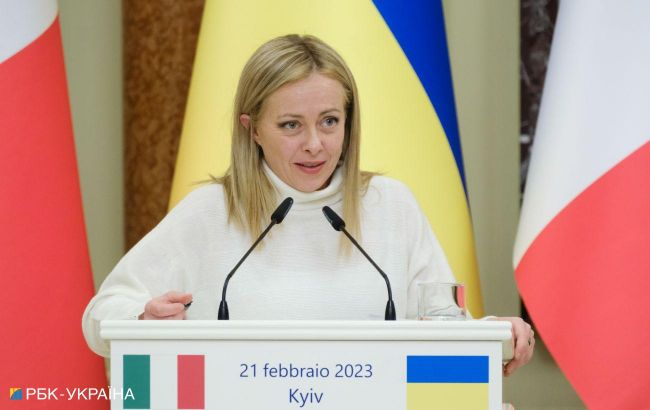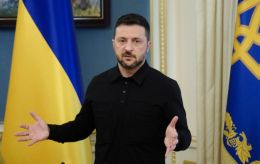Italian PM calls China's economic support for Russia matter of great friction
 Photo: Giorgia Meloni (Vitalii Nosach, RBC-Ukraine)
Photo: Giorgia Meloni (Vitalii Nosach, RBC-Ukraine)
Beijing's support for the Russian industrial complex is a matter of great friction, Italian Prime Minister Giorgia Meloni says.
During her visit to Beijing, Meloni said that China is an important stakeholder in finding a solution to end Russia's war against Ukraine.
“I believe China can become, starting from the principles of sovereignty and territorial integrity that it always appeals to, a key player in helping identify the elements of a just peace,” she says.
Meloni characterizes her meeting with Xi Jinping as “frank and respectful” and announced that the two prime ministers would hold annual meetings to keep in touch.
State media lavished praise on Meloni, and China Daily called Rome's withdrawal from the Belt and Road Initiative the result of external pressure from the United States. The Communist Party-run Global Times praised her for making Italy a bridge for exchanges between East and West and mentioned deepened political mutual trust in an editorial, noting that both sides have pledged to cooperate in the arts.
The Italian Prime Minister's trip to China came just months after she rejected Xi Jinping's flagship Belt and Road Initiative project threatened to undermine bilateral ties. This diplomatic balance is complicated by the European Union's tougher stance on trade with Beijing and criticism that China is supplying Russia with dual-use goods that strengthen Moscow on the battlefield.
China's support for Russia
China and Russia announced an unlimited partnership in 2022 when President Vladimir Putin visited Beijing just days before the invasion of Ukraine. China has not yet condemned the invasion and has increased exports to Russia, helping Moscow keep its military economy afloat.
As part of the “no limits” partnership, bilateral trade reached a record $240 billion in 2023, up 26% from a year earlier.

